When I am invited to visit a school, I am always taken with the work of young poets and I am equally moved when I speak with those who come later in life to the realm of poetry like month’s featured author, Jim Tilley.
Tilley earned a doctorate in physics from Harvard and worked on Wall Street for 20 years. He lives in Westchester, N.Y. and summers in South Harwich with his wife the literary agent Deborah Schneider. (Full disclosure here: Deborah is also my agent.)
His first collection, “In Confidence,” was published in 2011 and drew praise. Billy Collins wrote of it “Jim Tilley does confide in his readers here as he explores a refreshing variety of subjects – everything from the complexity of father-son and husband-wife relations to the more solvable problems of dark matter and the origins of the cosmos. But what wins our confidence is not his range but his steady hand on the poem and his steady gaze at the world.”
Though late to verse, Tilley apprenticed his whole life in that, in the way of all writers, he was paying attention. The result is that he pulls from life – things as simple as a day picnicking on Monomoy Island with friends or as complex as a problem of physics – an elegant and moving poem.
When asked what drew him to poetry Tilley responded, “When I was working at Morgan Stanley, I had no time to write, other than when I was head of Fixed Income Research and wrote research pieces on portfolio management, but that’s not at all creative writing.
“Because I like the sense of completion – novels take a huge commitment, years, without any guarantee that what you write will succeed, even in pleasing yourself – I decided to try my hand at poetry and began reading contemporary poets.
“My first was a book by Stephen Dunn, one that won him the Pulitzer for Poetry, ‘Different Hours.’ Dunn is still my favorite poet among many favorites. I had the good fortune to have taken a workshop with him at the Palm Beach Poetry Festival.
“Anyhow, back to the sense of completion. Poems are for the most part quite short in terms of lines and words. That doesn’t make them easy to craft, but it does mean that you know if you’ve got something that works pretty quickly.
“Sometimes a poem in unfinished form or finished but not satisfactory will lie around for a while, weeks, months, even years before it succeeds in calling back out to you and you can take it someplace else that does work.
“One of my best long poems, “On the Art of Patience,” came about just that way. I had seven short ‘failed’ poems, failed in the sense that I didn’t like the outcome. They seemed to have been born of a spark that held the promise of fire, but each just smoldered, and unfortunately, got over-revised until they virtually died.
“But one summer morning about a year later I looked back over these poems just lying around in a digital archive and saw that they might come together. I’d been reading a lot of Goldbarth, a collection called ‘The Kitchen Sink’ as it turned out. He is a master at weaving together different threads into a quilt, at putting together stories and images that you would never think could be found in the same poem.
“I tried to do the same with these seven failed poems and out popped “On the Art of Patience,” born almost whole. Virtually no revision needed. It was picked by Billy Collins to win the 2008 Sycamore Review Prize for Poetry.
Tilley says it was Schneider who pushed him out into the world of poetry through the workshop experience which he took on with a passion. Over the years he has participated in six workshops at the Palm Beach Poetry Festival, three at Bread Loaf, two at Sewanee, one at Southampton and one at Poets House in NYC. He also has worked with in the various workshops with Stephen Dunn, Tony Hoagland, Mark Doty, Brigit Pegeen Kelly, Louise Gluck, Claudia Emerson, Pete Fairchild, Mark Strand, Gerald Stern, and Mary Jo Salter, among others.
“Lessons from Summer Camp” is his third collection, all published by Red Hen Press.
“I thought it might be interesting to take a look back on that favorable childhood experience, in my situation, the 10 years 1960-1969, and move beyond a mere reminiscence, which could easily get too sentimental, and delve into the lessons we learned as a child and adolescent that has shaped our lives,” he said. “The things that camp taught us without our knowing it at the time. Good thing or we might not have enjoyed it anywhere nearly as much.”
Tilley dedicated the new collection to the campers, counselors, and staff (past, present, and future) of Camp Nominingue, a camp for boys, that was founded in 1925 and is still up and running.
Four of Tilley’s poems have been nominated for a Pushcart prize.
JIM TILLEY’S FIVE PICKS FOR APRIL
[Not a valid template]
“The Narrow Road to the Deep North”
By Richard Flanagan: Loved the bookends with Basho’s haibun. Pure poetry in that lovely round symbolic swoosh. The graphic depictions of the brutal treatment of Australians as Japanese POWs are so vivid, one wants to turn away from the page again and again. Reminds us of the evil that human beings are capable of when they are not permitted to question the authority of a near-deity, in this situation, the Japanese emperor. There are other compelling story elements, not the least of which is a love story, with a tragic ending, but it is the scenes of hard labor at constructing the Burma Railway that are unforgettable.
“All the Light We Cannot See”
By Anthony Doerr. One might think stories about World War II would get tiresome, that there would be no new slice on life to offer up. Wrong. (‘Life after Life’ by Kate Atkinson is also a good example of a different cut on a well-worn topic.) Imagine building a war story based on a relationship between a blind girl and a German boy during the height of WWII and they don’t even meet each other until the very end. I also love how Doerr telescopes time throughout the book, finally bringing the past to the present time in the novel. Such great use of short chapters.
“A Little Life”
By Hanya Yanagiharn: An absolute tour de force. At times the protagonist’s self-torture, self-loathing seem too hard to take. But the story is so riveting, we read on, pulled through one tragedy to the next, unable to escape an irresistible fascination with the protagonist’s savage plight.
“My Name is Lucy Barton”
By Elizabeth Strout: An unassuming protagonist, unworldly, naive, who nevertheless builds piece by piece a rather sophisticated take on the relationship with her mother.
“At the Edge of the Orchard”
By Tracy Chevalier: Just released, it’s Tracy’s latest. This time, a tale of the Johnny Appleseed-era. The rigors of settling in the Midwest are well depicted, all to set up the situation under which a perceptive young boy leaves an untenable family situation to strike out on his own. He tries his hand at various jobs, ending up involved in the late stages of the California gold rush. There is a love story in the book, a love story that the boy-become-man resists. Sort of an ironic ending with the protagonist and his lover setting off, not traveling east to west to find the new world. or to settle a new part of the new world, but heading from west to east, going to the old world from the new world. A tiny point, I know, but a lovely touch.
— Anne LeClaire is the best-selling author of eight novels, the latest of which is “The Lavender Hour.” A Cape Eye On Books is CapeCod.com’s online book club.




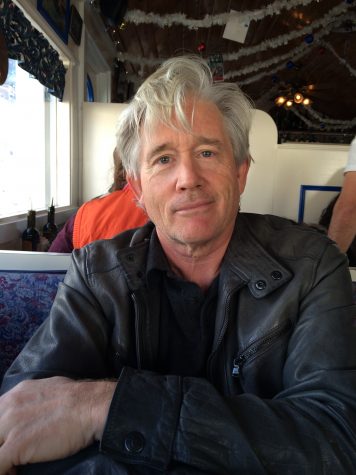
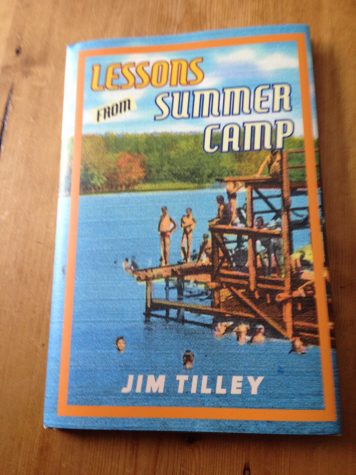
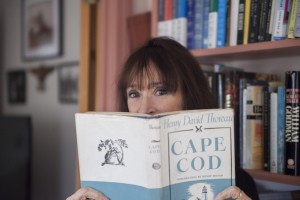




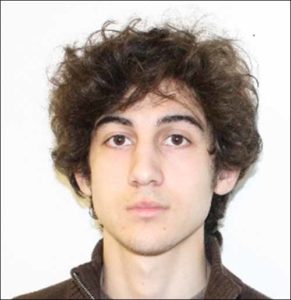

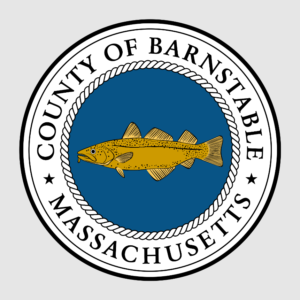


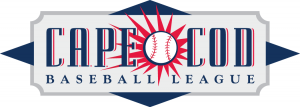








Speak Your Mind